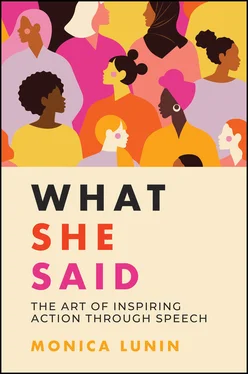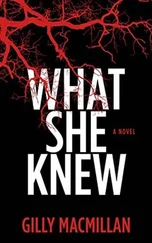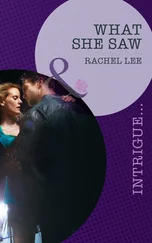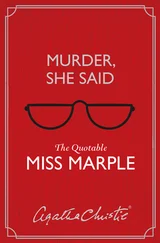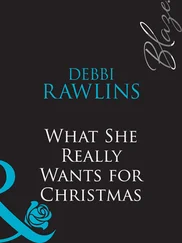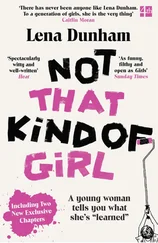Monica Lunin - What She Said
Здесь есть возможность читать онлайн «Monica Lunin - What She Said» — ознакомительный отрывок электронной книги совершенно бесплатно, а после прочтения отрывка купить полную версию. В некоторых случаях можно слушать аудио, скачать через торрент в формате fb2 и присутствует краткое содержание. Жанр: unrecognised, на английском языке. Описание произведения, (предисловие) а так же отзывы посетителей доступны на портале библиотеки ЛибКат.
- Название:What She Said
- Автор:
- Жанр:
- Год:неизвестен
- ISBN:нет данных
- Рейтинг книги:4 / 5. Голосов: 1
-
Избранное:Добавить в избранное
- Отзывы:
-
Ваша оценка:
- 80
- 1
- 2
- 3
- 4
- 5
What She Said: краткое содержание, описание и аннотация
Предлагаем к чтению аннотацию, описание, краткое содержание или предисловие (зависит от того, что написал сам автор книги «What She Said»). Если вы не нашли необходимую информацию о книге — напишите в комментариях, мы постараемся отыскать её.
What She Said
What She Said
What She Said — читать онлайн ознакомительный отрывок
Ниже представлен текст книги, разбитый по страницам. Система сохранения места последней прочитанной страницы, позволяет с удобством читать онлайн бесплатно книгу «What She Said», без необходимости каждый раз заново искать на чём Вы остановились. Поставьте закладку, и сможете в любой момент перейти на страницу, на которой закончили чтение.
Интервал:
Закладка:
Sometimes your ideas will disrupt the status quo. Like philosopher Hannah Arendt, you may have an insight that is complex, potentially confusing, but ultimately necessary in advancing our understanding of the human condition. In this case, you have all the more reason to speak up. The world of academia would have you believe that you, as an individual, have no place in the research and that you need to anonymise your findings. You can challenge that paradigm if you want to transmit more than your knowledge, if you want to help people see why it matters.
Perhaps communicating to a general audience is a challenge for you. Marie Curie was a practised teacher, but she preferred to lecture students in chemistry and physics — an audience already equipped with a foundation of knowledge upon which she could build. Delivering a Nobel Lecture to a general audience upon the acceptance of her second Nobel Prize was a challenge. Her example reminds us to define any terms that may be ambiguous and to signpost the information to make sure nothing is lost. The world now has the cherished gift of Dr Curie explaining the significance of the discovery of radium in her own words.
You might be driven by your own curiosity about a topic or a personal quest for understanding. Margaret Atwood first started looking at the topic that would become the focus of her Massey Lecture Series ‘Payback' for her own edification — that is, she wanted to understand the concept of debt and the shadow side of wealth. Her research began with the goal of enhancing her own knowledge, and then grew into a five-part lecture series. There is no better way to learn a concept, inside and out, than to teach it. You will likely see, as Atwood did, that an overwhelming amount of information needs to be broken down into categories, and then further reduced into bite-sized chunks. Atwood brings her superior literary capability to the lectern by sharing anecdotes and retelling ancient stories to help the audience understand complex ideas.
You cannot selectively numb. When we numb [hard feelings], we numb joy, we numb gratitude, we numb happiness. And then we are miserable, and we are looking for purpose and meaning, and then we feel vulnerable.
Brené Brown
Brené Brown
Leadership expert and author
B: 18 November 1965, San Antonio, Texas, United States
The power of vulnerability
When: 2010
Where: Houston
Audience: TEDx
Brené Brown launched herself into the public consciousness with a TED Talk. Her talk, delivered in June 2010 as part of TEDxHouston, is one of the most-viewed TED Talks of all available options, with close to 55 million views at the time of writing. The talk that captured the imagination of so many is about her social science research into vulnerability and shame.
This speech does many things at once. It is educational, entertaining and clear. But, most importantly, this TED Talk carries a nugget of wisdom that just might change somebody's life. It is a unique perspective — a fresh idea — and it is delivered from the heart.
Brené Brown breaks down her years of research to communicate a rare insight that sheds a little bit of light on what it means to be human. She is at once humbled and unafraid. Her manner is warm and her message is powerful. More than just a great example of an idea well communicated, this talk (extracts included here) encapsulates a remarkable life lesson.
A second or even third reading might be needed for you to see beyond the remarkable subject matter and observe the mechanics of communication. You can learn from Brown on two levels-of course, there is her remarkable insight, but there is also a wealth of technique in the way she shares her ideas.
WHAT SHE SAID
So, I'll start with this: a couple years ago, an event planner called me because I was going to do a speaking event. And she called and she said, ‘I'm really struggling with how to write about you on the little flyer.' And I thought, Well, what's the struggle? And she said, ‘Well, I saw you speak and I'm going to call you a researcher, I think, but I'm afraid if I call you a researcher, no-one will come, because they'll think you're boring and irrelevant.'
And I was like, ‘Okay.' And she said, ‘But the thing I liked about your talk is you're a storyteller. So I think what I'll do is just call you a storyteller.' And, of course, the academic, insecure part of me was like, ‘You're going to call me a what?' And she said, ‘I'm going to call you a storyteller.' And I was like, ‘Why not “magic pixie”?'
… And I thought, you know, I am a storyteller. I'm a qualitative researcher. I collect stories; that's what I do. And maybe stories are just data with a soul. And maybe I'm just a storyteller … So I'm a researcher-storyteller, and I'm going to talk to you today — we're talking about expanding perception — and so I want to talk to you and tell some stories about a piece of my research that fundamentally expanded my perception and really actually changed the way that I live and love and work and parent.
… So very quickly — really about six weeks into this research — I ran into this unnamed thing that absolutely unravelled connection in a way that I didn't understand or had never seen. And so I pulled back out of the research and thought, I need to figure out what this is . And it turned out to be shame. And shame is really easily understood as the fear of disconnection: Is there something about me that, if other people know it or see it, I won't be worthy of connection?
The things I can tell you about it: It's universal; we all have it. The only people who don't experience shame have no capacity for human empathy or connection. No-one wants to talk about it, and the less you talk about it, the more you have it. What underpinned this shame, this ‘I'm not good enough,' — which, we all know that feeling: ‘I'm not blank enough. I'm not thin enough, rich enough, beautiful enough, smart enough, promoted enough.' The thing that underpinned this was excruciating vulnerability. This idea of, in order for connection to happen, we have to allow ourselves to be seen, really seen.
And you know how I feel about vulnerability. I hate vulnerability. And so I thought, this is my chance to beat it back with my measuring stick. I'm going in, I'm going to figure this stuff out, I'm going to spend a year, I'm going to totally deconstruct shame, I'm going to understand how vulnerability works, and I'm going to outsmart it. So I was ready, and I was really excited. As you know, it's not going to turn out well.
… And so here's what I found. What they [whole-hearted people who believe they are worthy of belonging] had in common was a sense of courage. And I want to separate courage and bravery for you for a minute. Courage, the original definition of courage, when it first came into the English language — it's from the Latin word ‘cor', meaning ‘heart' — and the original definition was to tell the story of who you are with your whole heart. And so these folks had, very simply, the courage to be imperfect. They had the compassion to be kind to themselves first and then to others, because, as it turns out, we can't practise compassion with other people if we can't treat ourselves kindly. And the last was they had connection, and — this was the hard part — as a result of authenticity, they were willing to let go of who they thought they should be in order to be who they were, which you have to absolutely do that for connection.
The other thing that they had in common was this: they fully embraced vulnerability. They believed that what made them vulnerable made them beautiful. They didn't talk about vulnerability being comfortable, nor did they really talk about it being excruciating — as I had heard it earlier in the shame interviewing. They just talked about it being necessary. They talked about the willingness to say, ‘I love you' first … the willingness to do something where there are no guarantees … the willingness to breathe through waiting for the doctor to call after your mammogram. They're willing to invest in a relationship that may or may not work out. They thought this was fundamental.
Читать дальшеИнтервал:
Закладка:
Похожие книги на «What She Said»
Представляем Вашему вниманию похожие книги на «What She Said» списком для выбора. Мы отобрали схожую по названию и смыслу литературу в надежде предоставить читателям больше вариантов отыскать новые, интересные, ещё непрочитанные произведения.
Обсуждение, отзывы о книге «What She Said» и просто собственные мнения читателей. Оставьте ваши комментарии, напишите, что Вы думаете о произведении, его смысле или главных героях. Укажите что конкретно понравилось, а что нет, и почему Вы так считаете.
